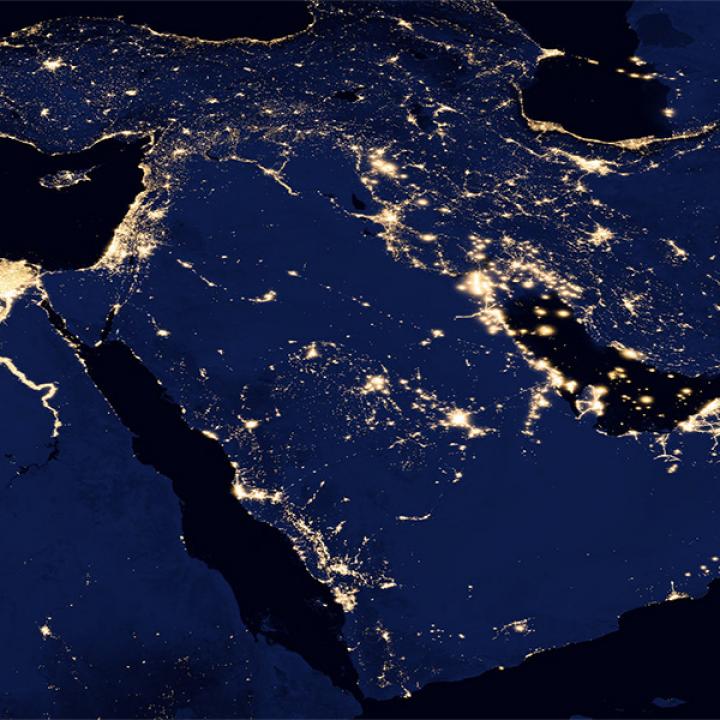
- Policy Analysis
- Articles & Op-Eds
U.S. Policy in the Middle East Amid Great Power Competition
Also published in Reagan Institute

The true U.S. strategy debate in the Middle East is not about whether we should stay or go; it’s about how to continue advancing the interests pursued by successive administrations even as hostile competitors and unresolved threats combine to throw U.S. regional policy off balance.
The following excerpt appeared in the new compendium The Future of Conservative Internationalism, Volume V. To read the full chapter, visit the Reagan Institute website.
By the end of the 2010s, two points of broad foreign policy consensus prevailed among Republicans and Democrats: The United States should not fight any more wars like Iraq, and the United States must shift to a focus on the Indo-Pacific given the threatening implications of China’s rise and demonstrated desire for hegemony in Asia. Both points seemed to imply a diminished U.S. commitment to the Middle East. Now, however, this consensus has evolved. American policymakers have arrived at the conclusion that strategic competition with China and Russia is global in scope, and the Middle East has a key role to play in it. That great power competition should draw the United States into—rather than out of—the Middle East is no historical anomaly. America was deeply engaged in the Middle East long before the Iraq War and the Global War on Terror. This engagement came not despite but because of the need to counter our great power competitor, the Soviet Union, which American policymakers worried might dominate the region’s resources and exert undue influence over its governance. Today, America’s competitors are once again contending for Middle Eastern influence. What’s more, unlike during the Cold War, the Middle East in turn is influencing events well beyond its boundaries...



